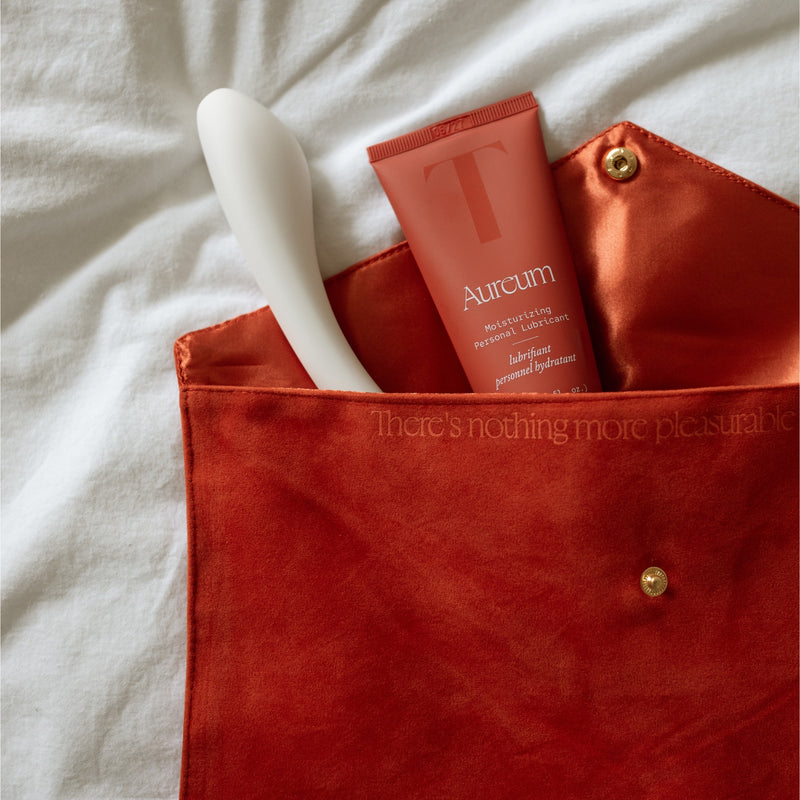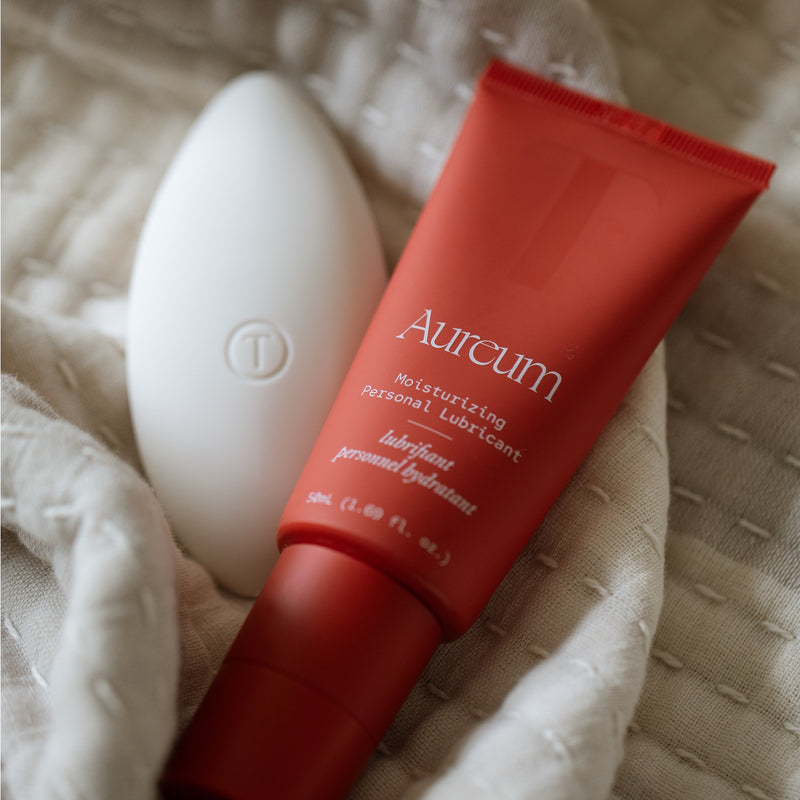Q&A with Esther Blum
Tabu: Very nice to meet you, Esther. Tell us a little bit about yourself.
Esther Blum: I'm an integrative dietitian, menopause expert, bestselling author, mom, and lover of dogs. I'm pretty much the best cocktail mixer you'll ever find.
Tabu: What's your favorite cocktail to make?
Esther Blum: Belvedere Martini. Straight up. Three olives. Perfect. Extra chilled. Incredible.
Tabu: We'll keep that in mind. What led you to become an integrative dietitian and then eventually menopause expert?
Esther Blum: I became a registered dietitian, and worked in hospitals for five years and realized that I had a whopping 10 minutes to give someone instructions on their diet after they'd had a heart attack before they were leaving the hospital. There was no follow up, there was no continuity and there was no prevention. So I got trained in functional medicine, because even though I had a bachelor's and a master's in clinical nutrition, I did not know how to supplement. I did not know how to answer questions about supplements.
Tabu: Could you talk a bit about what functional medicine means?
Esther Blum: Functional medicine treats the whole person and looks for the root cause. In Western medicine, you're trained to look at one system at a time. You go to a cardiologist for your heart, you go to a neurologist for your brain. But no neurologist is saying, “You're really suffering from depression. Why don't we look at the inflammation in your gut, because that's where 95% of your neurotransmitters are made.” When I treat my patients who are mostly perimenopausal and menopausal mamas, I not only look at hormones, but I also look at gut function. I look at your lifestyle, I look at your stress and your diet and your exercise and your sleep, and put all of those pieces together.
Tabu: What advice would you give to perimenopausal and postmenopausal women about their diet?
Esther Blum: I really am a big proponent, especially in perimenopause and menopause, of getting at least one gram per pound of protein for your ideal body weight. Protein is going to help fix your sleep and manage your insulin. It helps sustain cognitive function and muscle mass because we lose a lot of muscle mass in menopause with the drop in hormones. So that's number one. Number two is to have a higher ratio of protein than carbs.
Tabu: What does gut health mean and how can improving gut health help with symptoms of menopause?
Esther Blum: The better your gut is going into menopause, the easier your menopause will be. If you’re reabsorbing estrogen in the gut, or if you’re constipated, women can become estrogen dominant. Which leads to breast tenderness, weight gain, irritability, and mood swings. So you really want to make sure your hormones are like a gently moving stream and get detoxified daily–versus a stagnant pond where they are stuck and not moving through.
Tabu: What's something that people can do to support their gut health?
Esther Blum: Eat foods that are nutrient dense.
Fish and chicken and meats and eggs and butter and cheese, if you tolerate dairy. And eat your vegetables! 50% of your plate should be vegetables. Quality fats - avocados, nuts and seeds. Olive oil, coconut oil. You can also get probiotic foods. Kimchi is a great probiotic. Some people drink kombucha. Sauerkraut is another great one, or really fermented pickles. All of those can be really gut friendly as well. I write all about it in that book.
Tabu: Perfect segue. What led you to write your first book? Eat, Drink and Be Gorgeous?
Esther Blum: I'd been in practice 15 years. My clients kept saying things like, “Oh my God, you've got to write this down! You've got to write a book!!”
I was really inspired by Sex and the City and Carrie Bradshaw. I was like, “You know what? I want to bring that energy to a nutrition book. I want to make nutrition sexy and fun and accessible.”
Most people can afford a book or get it from the library. I really wanted to help a lot of people.
Tabu: What inspired you to write See Ya Later, Ovulator?
Esther Blum: My meno-rage kicked in at how women are being so horribly gaslit through the menopause process. And on the back of the book, there's a banner that says “Gaslight Free Zone”.
I'm just so sick and tired of the lack of quality care for women. Every day women go to the doctor and say, “You know, I'm having all these horrible symptoms. I stopped sleeping. No libido, hot flashes, vaginal dryness, brain fog.”
Many women just get a nice pat on the shoulder and are told, “Well that's just menopause.”
And guess what? Every single woman goes through menopause. She goes through it naturally, or she goes through it with hysterectomy or cancer medications. But no matter how you get there, we all get there.
There's no book out there like mine that tells women: these are the exact tests you need, these are the ways to speak to your doctor and advocate for yourself, these are the nutrients you need to take, here’s the food you need to eat. I had the most beautiful opportunity.
If every woman goes into her doctor's office with this book, with all the research studies that back up the science and the claims in the book, then the medical paradigm can actually shift. When women start demanding it, we're gonna change the fricking landscape of menopause for the next generations. No one should have to go through what older women have suffered through.
Tabu: How can women empower themselves in these conversations with their doctors when they know something's going on with their health, but they cannot get the tests they need to figure out what is going on?
Esther Blum: First of all, if you walk into your doctor's office and your doctor hands you a prescription for The Pill, wants to insert an IUD, or dismisses you altogether, run and find a new doctor!
A good doctor will listen to you, will partner with you, will not gaslight you, and, and by the way, wants to actually see you feel amazing.
Tabu: What are some lies women have been told about getting older, or about menopause?
Esther Blum: We're told you can't lose weight once you get older. That the metabolism just shuts down. And that it’s impossible to build muscle. I’ve seen studies showing that people in their nineties can build muscle mass. So we can all build muscle, we can lose weight. There are women bodybuilders in their seventies!
Don't fall prey to, “Oh, that's age, and that's menopause” - because that is death. You have to fight. Some of my clients say “Oh, I'm so old.” You're 52, you're not dead!
A myth around menopause is that hormones are dangerous. Not true. That claim was derived from a study called the Women's Health Initiative that used hormone replacement therapy on women who were ten years post-menopause - formulated from the urine of pregnant horses.
Menopausal women are not horses and they're certainly not pregnant, so that's not biologically compatible. The North American Menopause Society since updated their position paper twice on this - once in 2018, once in 2022. Now they say that hormones are really safe to use and beneficial for preventing Alzheimer's disease, osteoporosis and preventing heart disease.
Can you imagine? All these doctors with pamphlets in their office scaring the crap out of women for no good reason. It’s done us all a huge disservice.
Tabu: Is there anything through the process of writing this book that you learned that you now use in your own life or in your practice?
Esther Blum: What I really enjoyed the most about writing the book was collecting stories from other women. I really got to learn and see other people's perspectives. And there are many women who contributed, who are in their sixties and seventies.
I got a real historical perspective of these women who found doctors back in the day who fought for them and gave them their lives back. To me, that was such an inspirational and interesting part of writing the book.
Tabu: If somebody had to pick up the book and just read one part, one little section, what part would you say?
Esther Blum: They have to read the chapter on testing and treatment. They just have to, that's the crux of the book.
Tabu: How would you support a patient who was against taking hormones, through diet alone?
Esther Blum: I would have them follow a protein-rich diet, making sure that their intake of protein is higher than their carbs intake. Eating carbs at night is also key for deep sleep and insulin sensitivity. That's just my rock solid foundation. There are nutrients and herbs that you can use to support your hormone balance. Maca root has solid clinical studies that show it helps reduce hot flashes and improves energy. I love adaptogenic herbs like holy basil and ashwaganda. Those also support the adrenals. In menopause, hormone production shifts from ovarian production to adrenal production. So being on adaptogenic herbs can be very supportive.
Tabu: So where can people find your book?
Esther Blum: For the book, as well as my Happy Hormone Cocktail and a VIP ticket to my live event, go to estherblum.com/menopause/. Once you receive that, you will get on my mailing list. Certainly follow me on Instagram @gorgeousesther, because there’s quite a bit of good information there as well.
Tabu: Esther, is there anything else that you wanted to share before we wrap up?
Esther Blum: There's nothing in your body that cannot be healed with the right tools, and a supportive diet and supplement and lifestyle. You can absolutely get through menopause and feel better on the other side than you actually have in your whole life! That's what I want you all to hold space for, is just the absolute knowledge that the better it gets, the better it gets.







